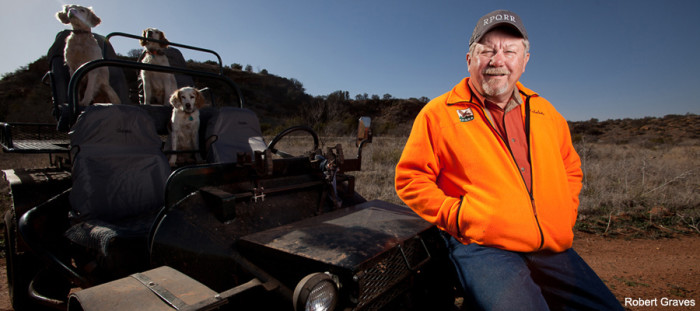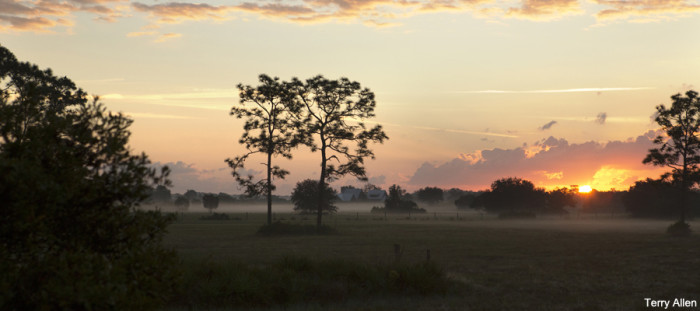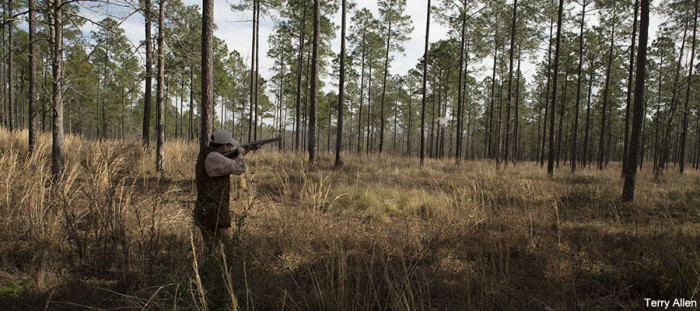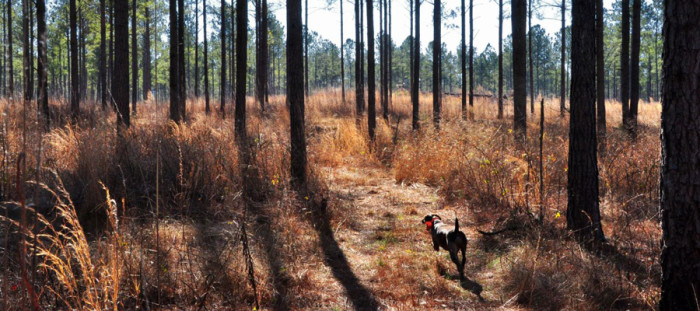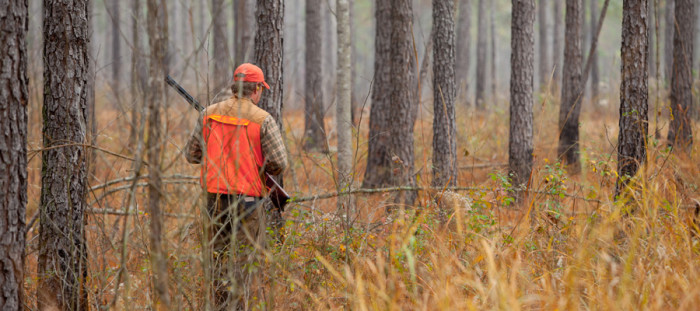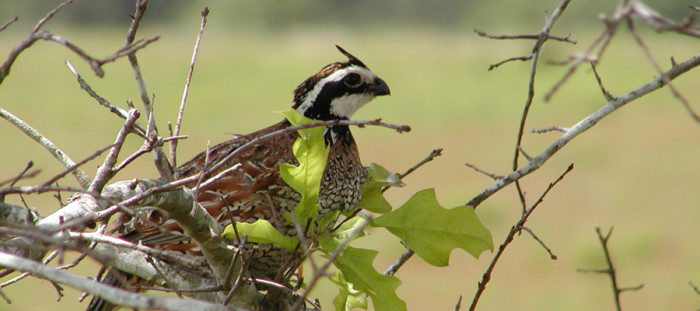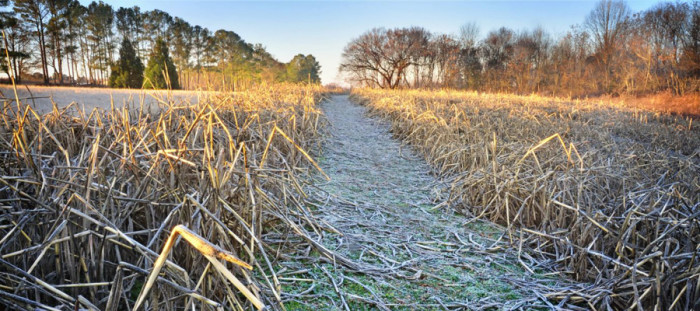We wanted to pass along a story written by Ray Sasser for our good friends at Covey Rise about the work that Dale Rollins has undertaken to help quail survive and thrive.
Dale Rollins figures he drove about a million miles in his career as an extension service biologist for the Texas A&M University system, what’s now called Texas AgriLife. Most of his trips were down seemingly endless West Texas highways. One December day in 1992, Rollins presented a program to the San Angelo Lion’s Club, and then headed for Childress (220 miles away) to talk with 4-H leaders. Along the way, he had an epiphany.
“As I drove along a lonely stretch of U.S. 83 between Aspermont and Guthrie, I contemplated that I could give such programs every day if I had the time and energy,” Rollins recalls. “Few of the programs required a PhD in wildlife management. I began mulling the idea of empowering youth as ambassadors for conservation awareness and the term ‘Bobwhite Brigade’ popped into my head.”
With the help of like-minded wildlife volunteers (and for the record, Rollins does have a PhD in wildlife management), Rollins organized the Bobwhite Brigade, a program that’s expanded to Texas Youth Brigades. The intense camps, usually held on large ranches, attract kids interested in quail, white-tailed deer, waterfowl, bass, and, new this year, ranch management for livestock. In 2014, seven Brigades are scheduled. Families who can’t afford the tuition can seek financial assistance.
About 2,600 “cadets” have already learned what it takes to maintain healthy fish and wildlife populations. Their calling is to spread that information far and wide. The serious cadets get it done, document their work, and are promoted to company commanders the next season. It’s hard work, but Rollins and his crew make it fun, using water guns to awaken exhausted cadets who fall asleep during presentations, playing the wildlife equivalent of Jeopardy (complete with theme music), learning in innovative ways how and why quail survive—and why they don’t.
Cadets also learn what are called “silver bullets,” bits of commonsense logic that go far beyond wildlife management. Rollins’ personal favorite is the anonymous quote: “I had no shoes, and I complained, until I met a man who had no feet.”
“What it means to me is not to wallow in self-pity,” he says. “You don’t have to look far to find someone with a much tougher row to hoe than you have—so man up and get to work.”
According to Rick Snipes, president of the Board of Directors of the Rolling Plains Quail Research Ranch, Rollins has made many friends through the years. “By establishing, inspiring, and running the Bobwhite Brigade program, Dale has built his personal stairway to heaven,” says Snipes, a North Carolina native who owns and operates a West Texas ranch that’s managed just for quail. “Dale can relate to most of the quail-hunting stakeholders. As much as any of us, he has a deep and abiding interest in the sport of quail hunting.”
Raised in southwest Oklahoma, Rollins blends humor, common sense, and intellect into something of a cross between Will Rogers and Aldo Leopold. He was hooked on quail at age five when he first heard the signature “bob white” whistle and he can take you with GPS precision to the spot where he shot his first bird on the wing.
“I’m so thankful I was raised where hunting opportunities from quail to jackrabbits were almost unlimited and where BB guns, .22s, .410s, and Remington Model 870 Wingmasters were rites of passage,” he says.
Rollins learned early on that theoretical biology wasn’t the same as practical biology. “One misconception upon graduating with a PhD from Texas Tech in 1983 was that the bulk of my time would be spent disseminating new research results from my colleagues to the ‘common folks on the back forty.’ In reality, I’ve learned more from dedicated landowners, and then cut and pasted their ideas to share with my biologist peers.”
There’s a silver bullet for that, a quote attributed to Benjamin Franklin: “Every man I meet is in some way my superior, and if I will listen to him, I can learn from him.”
Rollins says he was increasingly dissatisfied with the lack of what he calls “extendable research” being generated by A&M colleagues so he sought and received a partial research appointment in 1989 and began looking at quail issues in West Texas. In 2007, Rollins’ research efforts led to a generous donation by the Mellon Foundation to buy the Rolling Plains Quail Research Ranch (RPQRR). The ranch was purchased with a grant from The Conservation Fund and then the deed transferred to the newly created Rolling Plains Quail Research Foundation in 2007. The Foundation is managed by a six-man board (all Texas quail hunters) with Rick Snipes of Aspermont serving as its president. The ranch covers 4,270 acres in Fisher County, once the most prolific quail county in all of Texas.
Rollins retired from AgriLife in 2013 and was rehired to head up their Reversing the Decline of Quail initiative. It’s what he calls his part-time job. His full-time job is executive director of RPQRR. It seems like covey-rise kismet that the same year the RPQRR was founded, a group of Dallas volunteers led by Joe Crafton held the first Park Cities Quail (PCQ) fundraiser. In PCQ’s second year, the group selected Dallas businessman T. Boone Pickens to receive its Lifetime Sportsman Award and named the award for him. Pickens is a lifelong bird hunter and a self-made billionaire. A business writer once asked him when he first knew he was rich. Without hesitation, Pickens answered that he knew he was rich when he realized he owned 30 bird dogs. His Mesa Vista Ranch in Roberts County, Texas, is one of the state’s best quail properties.
PCQ adopted RPQRR and funds its annual budget. People in Texas are serious about their quail, and the annual PCQ fund-raiser generates more money than the research ranch spends. In 2014, the fund-raiser—a dinner and live auction—set attendance records of 1,100 and net proceeds of $1,005,000. All the money goes to quail research and conservation. Any valid research program can make a grant application. Through 2014, PCQ will have raised and spent $4.5 million on Texas quail programs.
As usual, at the 2014 event, Pickens donated an exclusive quail hunt for six couples to Mesa Vista. For the third consecutive year, it sold to Dallas businessman Carl Allen. He paid $150,000 for the privilege. Pickens himself paid $125,000 for VIP passes to George Strait’s final concert. Strait received the 2014 Lifetime Sportsman Award. Videos of the event are online at parkcitiesquail.com.
“The support of PCQ in general and T. Boone Pickens in particular has literally been the wind under our wings,” says Rollins. “We (RPQRR) were fortunate to be hatched about the same time. They were looking for a cause and we were looking for a dedicated partner. It’s a marriage made in quail heaven. Boone’s influence has provided money and a showcase in Mesa Vista Ranch for what quail management can be. Having a man of his means and affection for quail as a pacesetter and spokesman is a tremendous asset for quail folks.”
Rollins hunts from a dune buggy with his dogs loose in the backseat. When he finds a spot that looks good to him, he stops the vehicle and, without even looking at the dogs, announces, “I need a volunteer.” Whether bird dogs, Bobwhite Brigade teachers and cadets, conservation funds, or fund-raising machines like PCQ, volunteers are anxious to work for a man who leads by example.
We would like to thank Covey Rise for allowing us to share this full published story with our subscribers. To check out previews of other great articles and some truly beautiful photography visit their website and consider subscribing to Covey Rise a magazine devoted to the upland sporting lifestyle (www.coveyrisemagazine.com).

